Heavy Metal Finds Its Place in the Spotlight

Metal and Hardcore Club cofounders John Forrestal and Ivan Chopik
Photo by Phil Farnsworth

Jacob Klag
Photo by Phil Farnsoworth
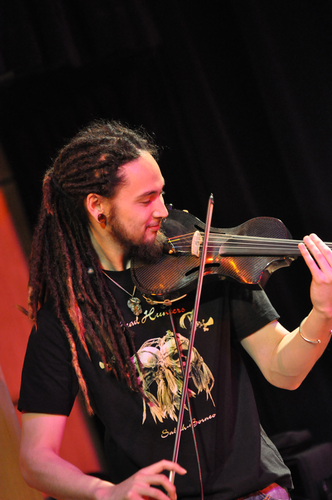
Jason Lim
Photo by Phil Farnsworth
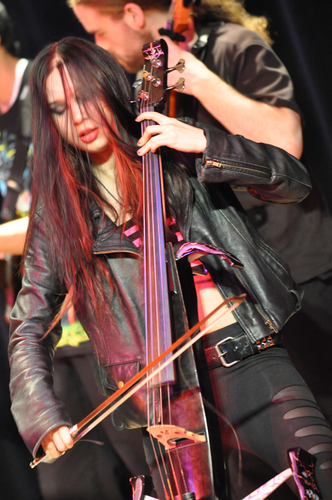
Eden Rayz
Photo by Phil Farnsworth

Tori Letzler
Photo by Phil Farnsworth
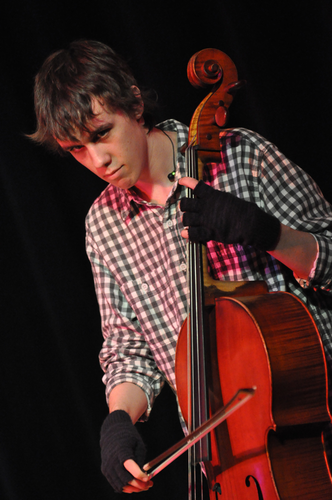
David Tangney
Photo by Phil Farnsworth

Aaron Liao
Photo by Phil Farnsworth
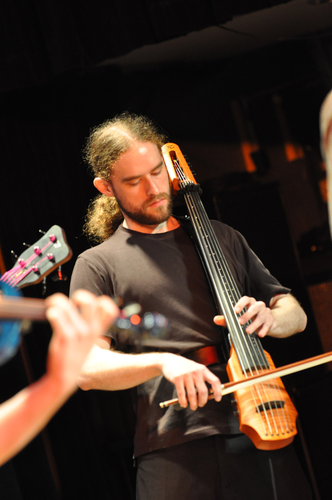
Dean Capper
Photo by Phil Farnsworth
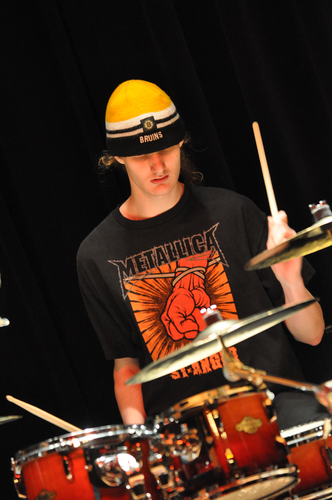
Carson Groenewold
Photo by Phil Farnsworth
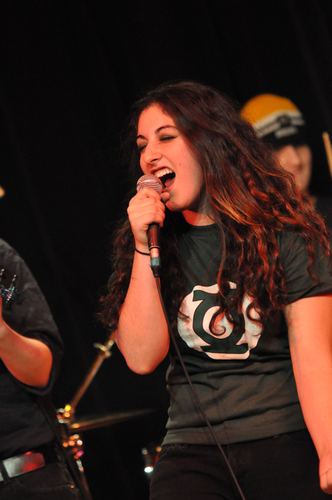
Rae Amitay
Photo by Phil Farnsworth
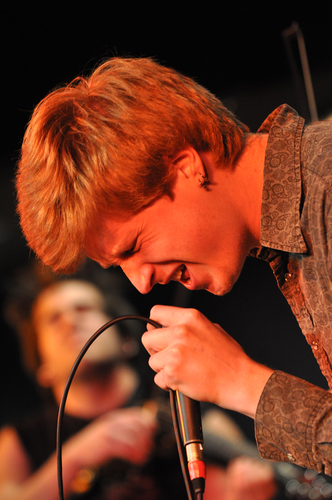
Steve Hopkins
Photo by Phil Farnsworth

Michael Scott
Photo by Phil Farnsworth
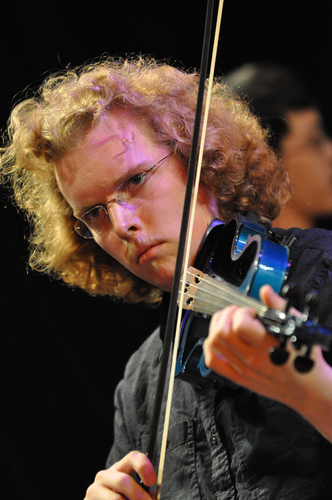
Trev Wignall
Photo by Phil Farnsworth
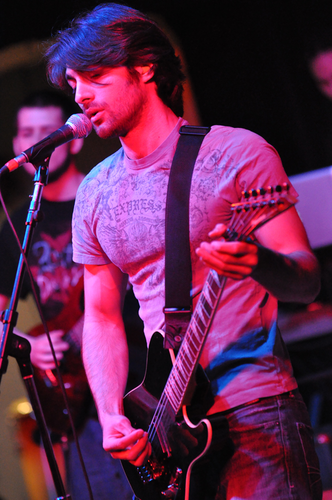
Taurees Habib
Photo by Phil Farnsworth
Berklee may have been founded on jazz, but the college has come a long way since then. Heavy metal—previously relegated to cramped practice rooms or sweltering basements—is now an official part of the curriculum, in large part due to the efforts of Metal and Hardcore Club cofounders John Forrestal and Ivan Chopik.
The club, which began in the fall of 2008, now has more than 100 members, and even more students attend clinics by artists such as Shadows Fall drummer Jason Bittner '89, guitarist Dave Reffett, Zen of Screaming vocal coach Melissa Cross, and Animals as Leaders guitarist Tosin Abasi. The first official Berklee metal ensemble, launched in the fall of 2009, has since spawned three others, and the String Metal Ensemble is even featured on student-run record label Heavy Rotation Records's newest album, Under the Influence.
"It's a growing population who are into heavy music, whether it be metal or hardcore, and this was just a great opportunity to do something organized and give those people a voice at the school," says Chopik.
Heavy metal shredder Joe Stump is the advisor for the club. "He's the metal authority in the Guitar Department," says Chopik. "He was one of the reasons I came to Berklee."
Metal is certainly not a new thing at the school. The core members of the progressive metal band Dream Theater all attended in the '80s, and there's an abiding love for them at Berklee. Cartoon Network's Metalocalypse creator Brendon Small also went to Berklee. But never before has the genre been an official part of the curriculum.
"Metal's always been somewhat underground," says Stump. "Musical trends will come and go, but metal music and its legions of fans will always be there."
At first Chopik and Forrestal were surprised at the support they received. From the Alumni Office to the Ensemble Department to the Performance Division, areas of the college have funded each of their clinics, and Ensemble Department chair Ron Savage was the one who first suggested creating an ensemble after hearing Chopik's band. Professor Bob Schlink got on board and now heads each of the groups. The Guitar Department also added a metal guitar night to its list of jazz/blues, rock/pop, and R&B/funk guitar nights.
"When I came here, metal seemed to be a very small thing," says String Metal Ensemble vocalist Tori Letzler. "Now that we're out there, people are really respecting it more."
Of course, metal isn't the only genre that these students play. Letzler, a film scoring major, nearly went to a classical conservatory. Forrestal, who came up through the hardcore punk scene, is a guitarist majoring in both composition and contemporary writing and production. And Chopik, a dual major in guitar performance and music business, came to heavy metal through blues and classic rock, and even went on Berklee's spring break trip to Nashville. He also plays in a GB band covering all styles of music and with singer-songwriter Nikolas Metaxas. "I try to play as many different styles as I can. I think combining metal with outside influences makes for a rewarding musical experience," Chopik says.
"I think it's cool that we come from such different backgrounds, but we became friends and met through this," he adds.
The supportiveness of the community that's coalesced around the club may be surprising for those who view metal as angry antiestablishment music. But Forrestal and Chopik say that the metal community is very close-knit.
"That's overlooked because it's such an intimidating style. Most people probably think these guys just slam beers and talk about Satan or something," says Forrestal. "I'd have to say that a good 95% of everyone that I know in my life that isn't blood-related has been met through music: metal, punk, hardcore, rock, whatever you want to call it."
Indeed, with so many subgenres and so much evolution over the years, it can be hard to define metal's sound. Chopik uses one word: heavy. "That ties us together," he says.
"Attitude is really key, since music constantly evolves," adds Forrestal. "It's an aggressive means to get your point across."
One thing they've noticed changing as metal gets more popular at the school is the sound mixing in the BPC. "When you have a jazz quartet, it requires a completely different approach to mixing," says Chopik.
"You've got to cut through a lot more," says Forrestal. "The drums carry the music. Guitars are usually drop-tuned; bass is always prevalent. It's low and loud."
As Berklee's sound engineers—and the rest of the college—adjust to metal, Chopik, Forrestal, and a growing number of students continue to play the music that they're so passionate about.
